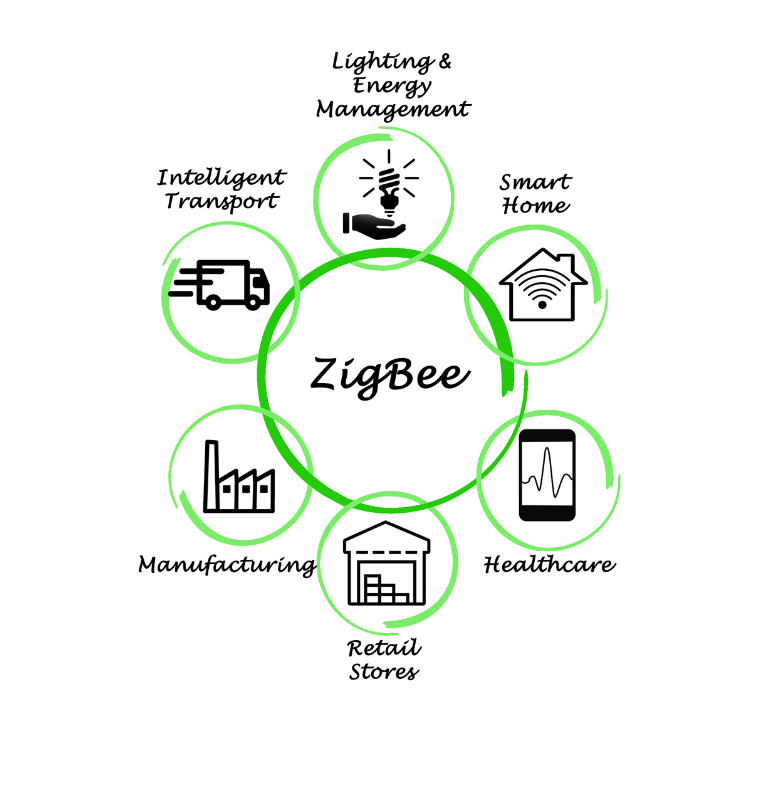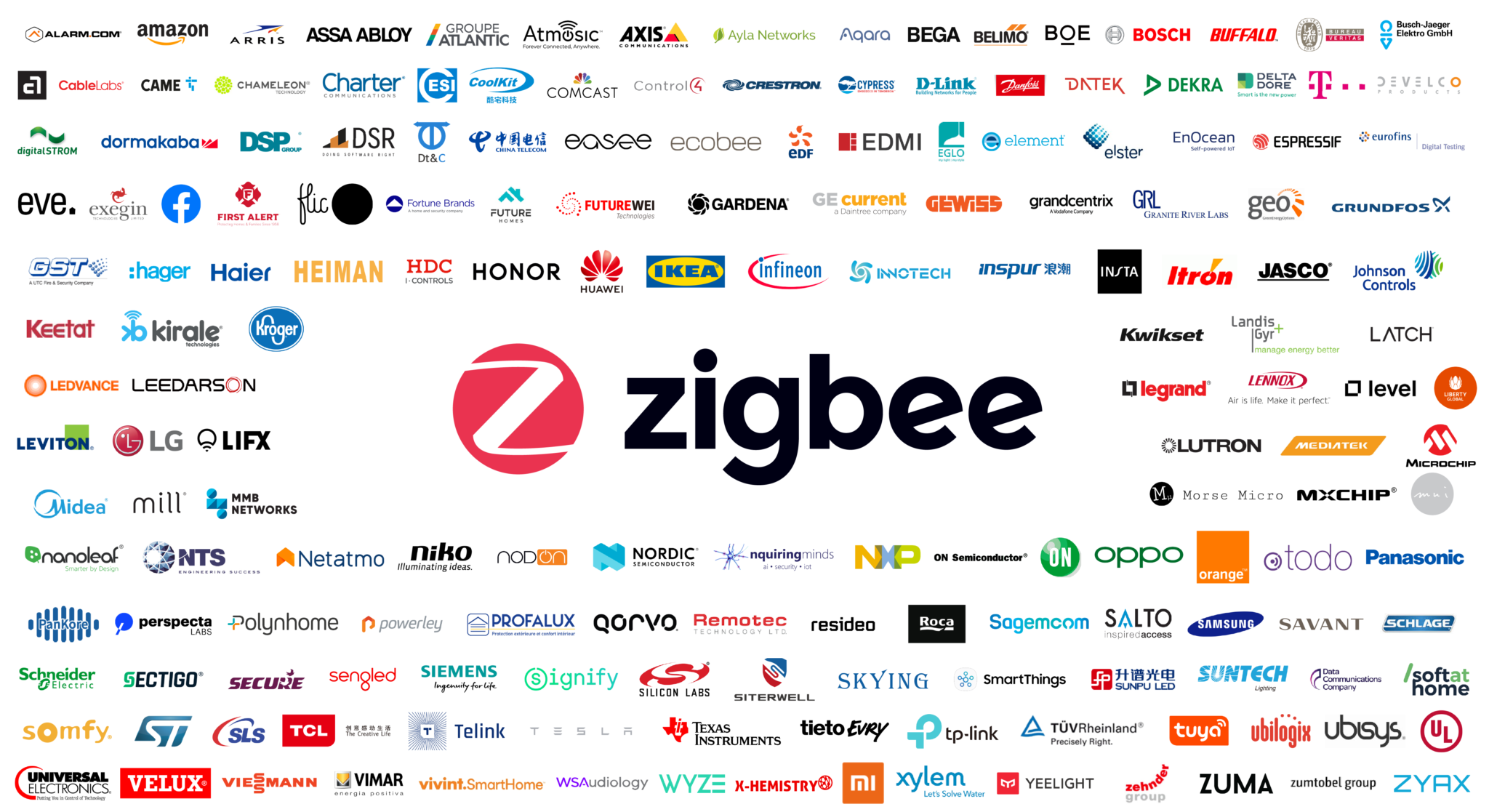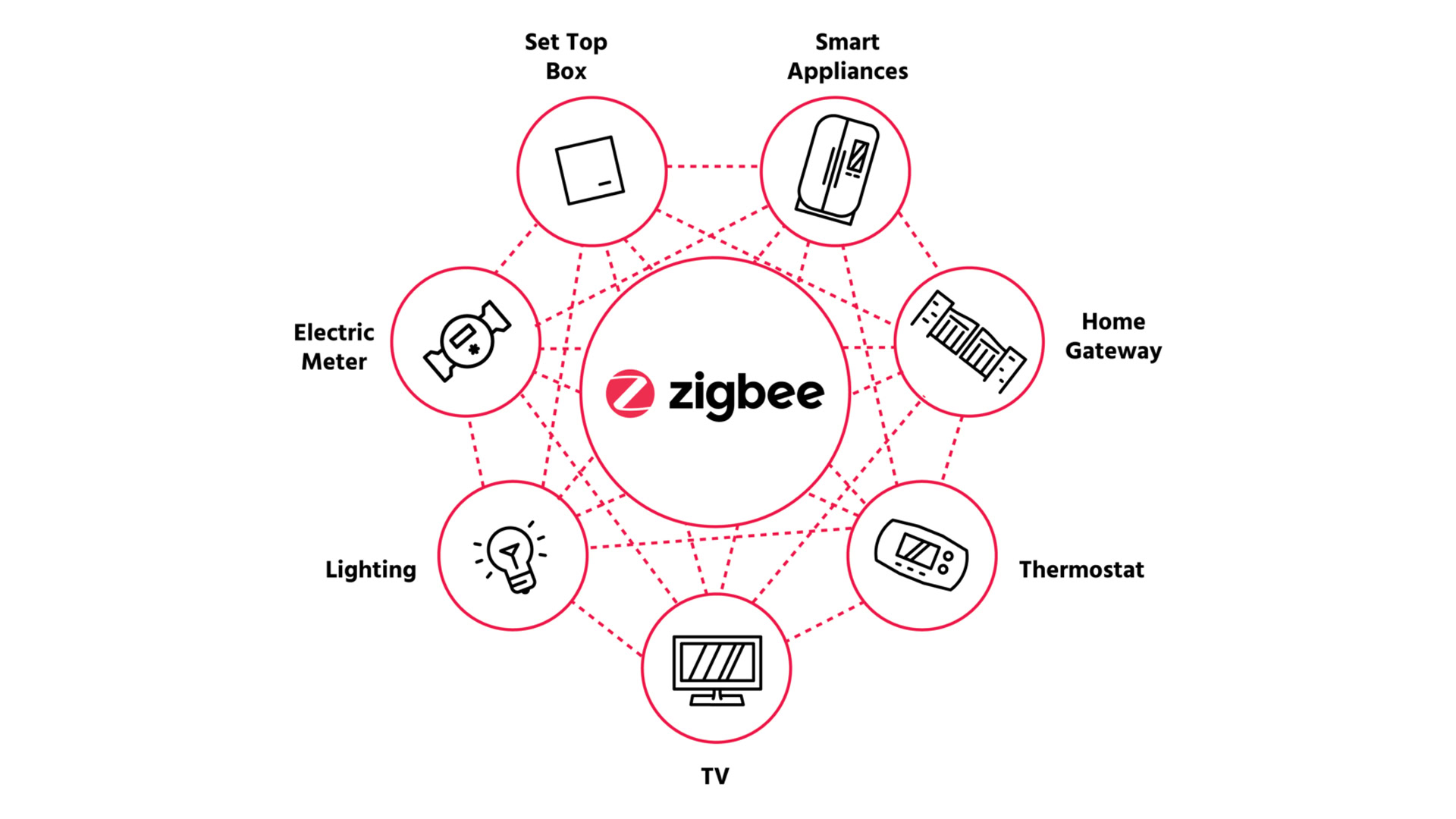Outstanding Info About Is Zigbee Still Popular

Zigbee For Of Things (IoT) YouTube
Is Zigbee Still Popular? Let's Untangle the Smart Home Web
1. Diving into the Zigbee Ecosystem
So, you're pondering Zigbee's place in the modern smart home, huh? Good question! It feels like there's a new smart protocol popping up every other week, promising to be the "next big thing." But amidst all the buzz around Wi-Fi 6, Bluetooth Mesh, and the shiny new Matter standard, it's easy to wonder if Zigbee's days are numbered. Is it a relic of a bygone era, or does it still have some tricks up its sleeve? The answer, as with most things tech-related, is a bit nuanced. Let's unpack it.
First, let's refresh our memories. Zigbee is a low-power, low-data rate wireless communication protocol primarily designed for home automation and IoT devices. Think light bulbs, sensors, smart locks — the kind of gadgets that don't need to stream Netflix but do need to chat with each other reliably and efficiently. Its mesh networking capabilities are a key advantage: devices can talk to each other directly, relaying signals and creating a robust, self-healing network. This means no single point of failure bringing the whole system down. Pretty neat, right?
One of the reasons Zigbee gained popularity in the first place was its lower power consumption compared to Wi-Fi. This makes it ideal for battery-powered devices that need to last for months, or even years, on a single charge. Imagine changing the batteries in all your smart sensors every week; you'd quickly lose enthusiasm for the smart home life! Also, Zigbee tends to be less congested than Wi-Fi, as it operates on a different frequency band. This can lead to more reliable performance, especially in crowded urban environments where Wi-Fi signals are bouncing off every wall and appliance.
And here's a kicker: while it might not be the flashiest protocol out there, Zigbee has a solid track record. It has been around for quite a while, meaning it has a mature ecosystem of devices and integrations. This longevity brings a certain level of stability and reliability that newer protocols are still striving for. So, before we start writing Zigbee's obituary, let's see where it currently stands in the smart home race.

What Is Zigbee Technology And How Does It Work?
Zigbee vs. The Competition
2. Analyzing Alternatives and Their Drawbacks
Okay, so Zigbee's got a history, but what about the competition? Let's take a look at some of the main contenders and see how they stack up. Wi-Fi is the obvious one. It's ubiquitous, practically every home has a Wi-Fi router already, and most smart devices support it. However, Wi-Fi can be a power hog, and it can also be a pain to manage dozens of devices all clamoring for bandwidth on your home network. Plus, Wi-Fi's star topology (where everything connects directly to the router) can be a single point of failure.
Then there's Bluetooth, which has also made strides in the smart home arena with Bluetooth Mesh. It's low-power, like Zigbee, but Bluetooth Mesh networks can be more complex to set up and manage. And while Bluetooth's range has improved, it still generally lags behind Zigbee, especially in larger homes. Also, you have to consider the security issues. Bluetooth has a history of vulnerabilities; though it has improved, it still is an ongoing task to keep it secure.
Finally, we have the newcomer, Matter. Matter aims to unify the smart home ecosystem by providing a universal application layer that works over different underlying protocols, including Wi-Fi, Thread (another low-power mesh networking protocol), and, yes, even Zigbee. Matter's goal is to make it easier for devices from different manufacturers to work together seamlessly. It's a promising development, but it's still relatively early days, and the full impact of Matter remains to be seen. But that's for sure that Matter is not intended to replace Zigbee altogether but to provide a common language for smart devices to communicate, regardless of the underlying protocol.
So, considering the strengths and weaknesses of each protocol, it's clear that Zigbee still holds its own. It offers a good balance of low power consumption, reliability, and range, making it a solid choice for many smart home applications. While other protocols might excel in specific areas, Zigbee provides a well-rounded solution for building a robust and responsive smart home network.

Qu'estce Que ZigBee Et Avec Quels Appareils Peutil Fonctionner Dans Le
The Current State of Zigbee
3. Current Market Presence and Device Availability
Okay, so we know Zigbee's got some benefits, but is anyone actually using it anymore? The answer is a resounding yes! Despite the emergence of newer technologies, Zigbee remains a significant player in the smart home market. You'll find Zigbee devices from major brands like Philips Hue, Samsung SmartThings, Amazon Echo (with built-in Zigbee hubs), and many others. The range of available devices is vast, spanning everything from lighting and climate control to security and home entertainment.
The popularity of Zigbee is particularly evident in lighting control systems. Philips Hue, for example, relies heavily on Zigbee to connect its smart bulbs and accessories. The reliability and responsiveness of Zigbee make it ideal for controlling lighting, where even a slight delay can be noticeable and annoying. Similarly, Samsung SmartThings uses Zigbee to connect a wide variety of sensors and devices, creating a comprehensive smart home ecosystem.
One of the key factors contributing to Zigbee's continued success is its focus on interoperability. The Zigbee Alliance (now the Connectivity Standards Alliance) has worked hard to ensure that devices from different manufacturers can work together seamlessly. While not every Zigbee device is guaranteed to play nicely with every other device, the level of interoperability is generally much higher than with proprietary protocols. This gives consumers more flexibility and choice when building their smart homes.
However, it's worth noting that the landscape is constantly evolving. The rise of Matter could potentially shift the balance of power in the smart home market. If Matter succeeds in creating a truly unified ecosystem, it could reduce the need for consumers to worry about the underlying communication protocols. But even in that scenario, Zigbee could still play a vital role as one of the underlying technologies that Matter relies upon. It will depend in the long run.

What Is Zigbee It's Purpose And Function Explored
Zigbee's Future
4. Predictions for the Smart Home Tech Landscape
Alright, let's gaze into our crystal ball and see what the future holds for Zigbee. Will it fade into obscurity, or will it continue to be a relevant force in the smart home? My take is that Zigbee will likely remain a valuable technology for the foreseeable future, even as Matter gains traction.
Why? Because Zigbee's strengths — low power consumption, reliability, and mesh networking capabilities — are still highly desirable for many smart home applications. Battery-powered sensors and devices that need to operate for extended periods without needing to be recharged will continue to benefit from Zigbee's power efficiency. The mesh networking capabilities provide inherent coverage and the self-healing capabilities make it an attractive option.
Furthermore, Zigbee is already deeply embedded in many existing smart home ecosystems. Millions of Zigbee devices are already deployed in homes around the world, and it's unlikely that these devices will simply be replaced overnight. Instead, we're more likely to see a gradual transition, with new devices supporting Matter alongside Zigbee (or other protocols). And, as mentioned earlier, Matter is not intended to replace Zigbee, it is just a way to unify communication between different devices.
So, while the smart home landscape is constantly changing, Zigbee has proven its resilience and adaptability. It may not be the only player in the game, but it's definitely not going away anytime soon. And perhaps, the fact that it is not flashy or new is what makes it so reliable. New technology is great, but sometimes what you want is good old reliable technology that just does what it says it will do.

Embracing the Smart Home
5. Why Choose Zigbee in a World of Options?
After weighing all the evidence, it's clear that Zigbee, while not always the headline-grabber, remains a steadfast and dependable choice for building a smart home. Its maturity, combined with its practical advantages, makes it a compelling option, especially for those prioritizing reliability and energy efficiency.
Consider the homeowner seeking a stable lighting system. Zigbee-based solutions like Philips Hue offer seamless control, minimal delays, and the peace of mind that comes with a well-established technology. Or think of the security-conscious individual who wants a robust network of sensors and alarms. Zigbee's mesh networking ensures that critical alerts are delivered, even if one device falters.
Ultimately, the decision of whether or not to embrace Zigbee comes down to individual needs and preferences. If you're looking for the latest and greatest technology, you might be tempted by newer protocols like Thread or Wi-Fi 6. But if you value reliability, energy efficiency, and a proven track record, Zigbee is definitely worth considering. The truth is, the best smart home is the one that works best for you. And for many, that means Zigbee continues to play a valuable role.
So, is Zigbee still popular? Absolutely. It's not just surviving; it's thriving in specific niches and continuing to provide a valuable service in the ever-evolving smart home landscape. So, go forth and build your smart home, armed with the knowledge that Zigbee is still a viable and dependable option. And hey, if you ever need to troubleshoot your Zigbee network, you know where to find the information!

What Is Zigbee? Everything You Need To Know Android Authority
Frequently Asked Questions about Zigbee
6. Addressing Common Queries and Concerns
Got more questions about Zigbee? You're not alone! Here are some common queries that smart home enthusiasts often have:
Q: Is Zigbee compatible with Matter?A: Yes, Zigbee can be compatible with Matter. Matter is designed to work over different underlying protocols, including Zigbee. However, it will require compatible devices and potentially a bridge or hub that supports Matter. Not all Zigbee devices will automatically be Matter-compatible.
Q: What are the main benefits of using Zigbee?A: The key benefits of Zigbee include low power consumption (ideal for battery-powered devices), reliable mesh networking (creating a robust and self-healing network), and a mature ecosystem of devices and integrations.
Q: Is Zigbee more secure than Wi-Fi?A: Zigbee uses AES-128 encryption, which is considered highly secure. Whether it's more secure than Wi-Fi depends on how the Wi-Fi network is configured and secured. A properly secured Wi-Fi network can also be very secure, but Zigbee's inherent security features make it a strong contender in terms of security.
Q: Do I need a special hub to use Zigbee devices?A: Yes, you typically need a Zigbee hub to connect Zigbee devices to your home network and control them. Some popular hubs include the Philips Hue Bridge, Samsung SmartThings Hub, and Amazon Echo devices with built-in Zigbee hubs.